Fiji take giant step towards World Rugby Sevens Series title but Ireland steal the show as Jordan Conroy lights up London
Fiji clinch a fourth straight gold medal as Ireland beat England in the bronze final in their first tournament for 14 years
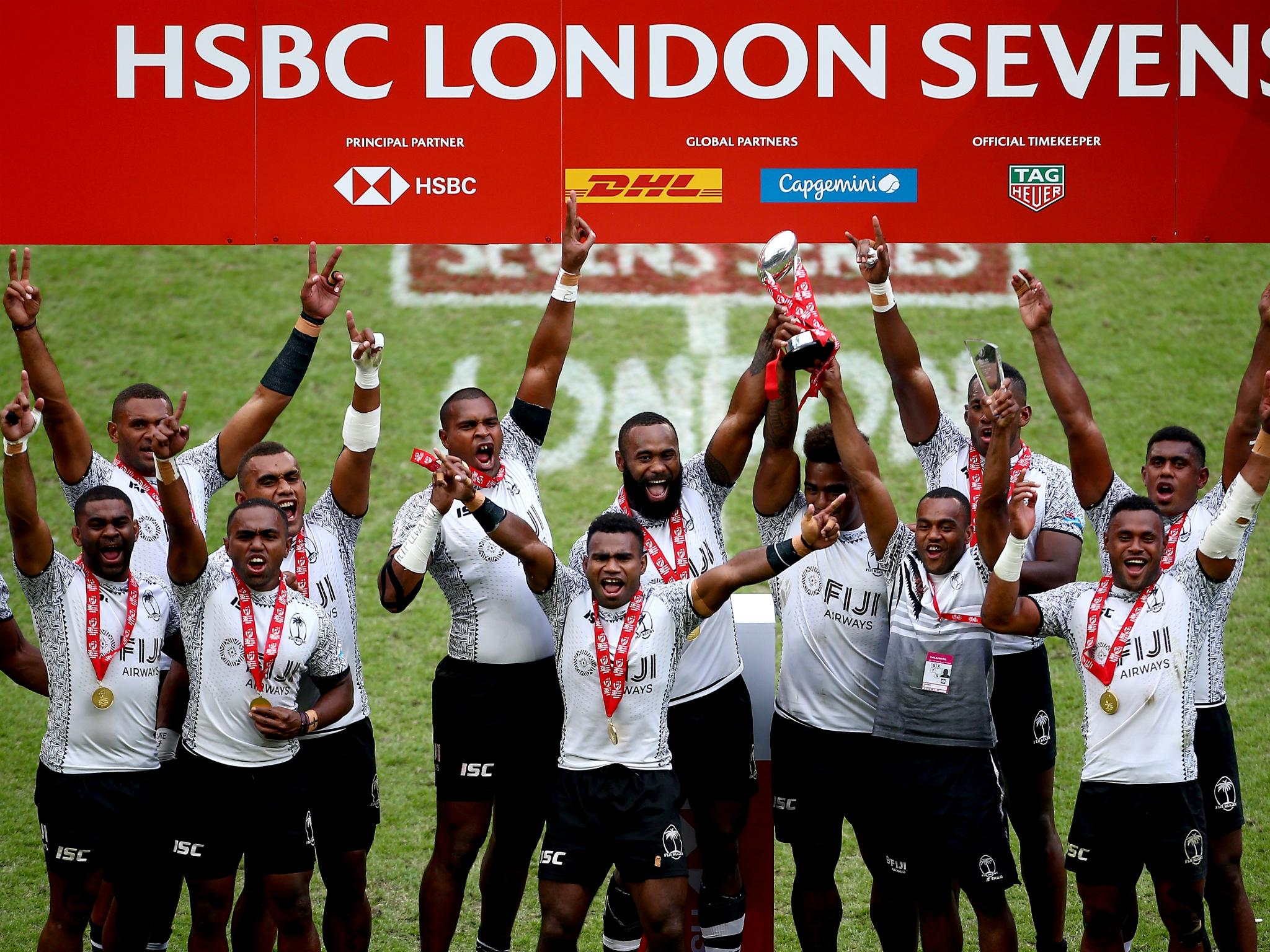
Your support helps us to tell the story
From reproductive rights to climate change to Big Tech, The Independent is on the ground when the story is developing. Whether it's investigating the financials of Elon Musk's pro-Trump PAC or producing our latest documentary, 'The A Word', which shines a light on the American women fighting for reproductive rights, we know how important it is to parse out the facts from the messaging.
At such a critical moment in US history, we need reporters on the ground. Your donation allows us to keep sending journalists to speak to both sides of the story.
The Independent is trusted by Americans across the entire political spectrum. And unlike many other quality news outlets, we choose not to lock Americans out of our reporting and analysis with paywalls. We believe quality journalism should be available to everyone, paid for by those who can afford it.
Your support makes all the difference.England and Ireland narrowly missed out on setting up a dream final at the London leg of the World Rugby Sevens Series on Sunday as they both fell short at the hands of the two best sides on the planet, but they did produce a memorable bronze final as the men in green stunned the hosts with a last-minute try in their first tournament for 14 years, before Fiji took top honours to move a step closer towards regaining the championship.
Ireland, here in London and next week in Paris only by invitation from World Rugby, had not been seen in the series since 2004 and had never before reached the cup quarter-finals. But an astonishing Sunday saw them shock the United States and go toe-to-toe with series leaders Fiji, before saving their best moment until the end of the day.
The unlikely hero proved to be wing Jordan Conroy, who will have certainly alerted a number of potential suitors after scoring eight tries across the weekend, including a match-winning hat-trick in the bronze final. The Irish shot out of the blocks with two quick tries for Conroy, although a Dan Bibby double pegged Ireland back with Dan Norton then putting England in front with his 295th career try.
But Conroy and Ireland would not be denied and his last-minute try levelled the scores to allow Mark Roche to kick the tricky touchline conversion and seal a famous victory that proves Ireland belong on the Sevens stage.
At one stage it appeared that an Anglo-Irish gold medal final could be on the cards in what would be a real treat for home fans. While the partisan crowd were clearly in favour of the red rose, bursts of bright green around the stadium proved that the Irish were here in good numbers too, but in the end both Fiji and South Africa, first and second in the current series table, proved too strong.
Progression to the last four at their home tournament was impressive enough for an England side sitting down in eighth before this tournament began – albeit a rank that has improved to sixth with this performance as they overtake Argentina and Kenya – but for Ireland it was nothing short of incredible.
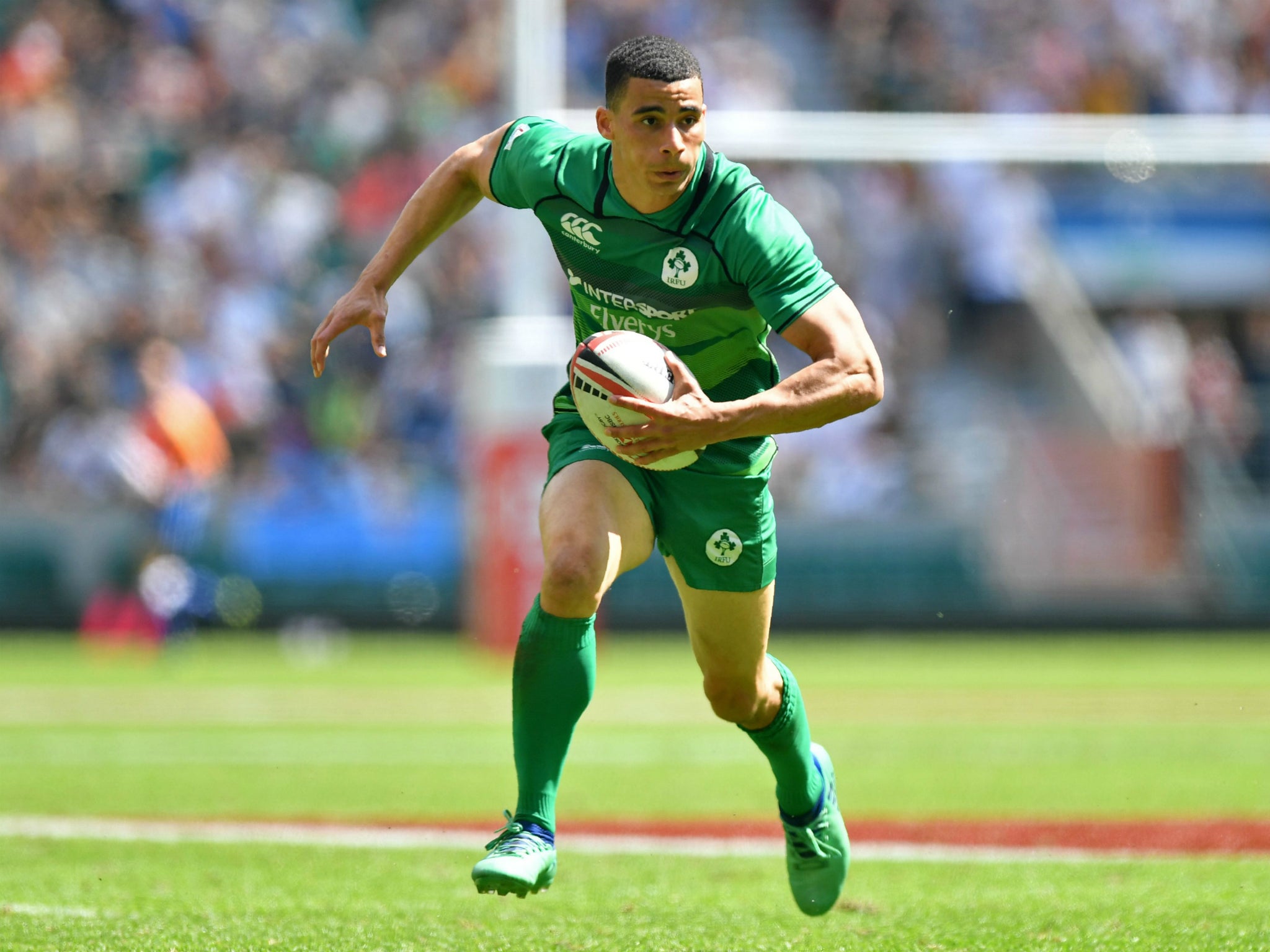
Having qualified for next month’s Rugby Sevens World Cup, the upward trajectory of Irish rugby continued as they reached the cup quarter-finals on Saturday for the first time in their history, and surpassed that feat by beating the United States to reach the last four. However, a rampant Fiji side proved too strong, with the Pacific Islanders running out 38-12 winners in a dominant display.
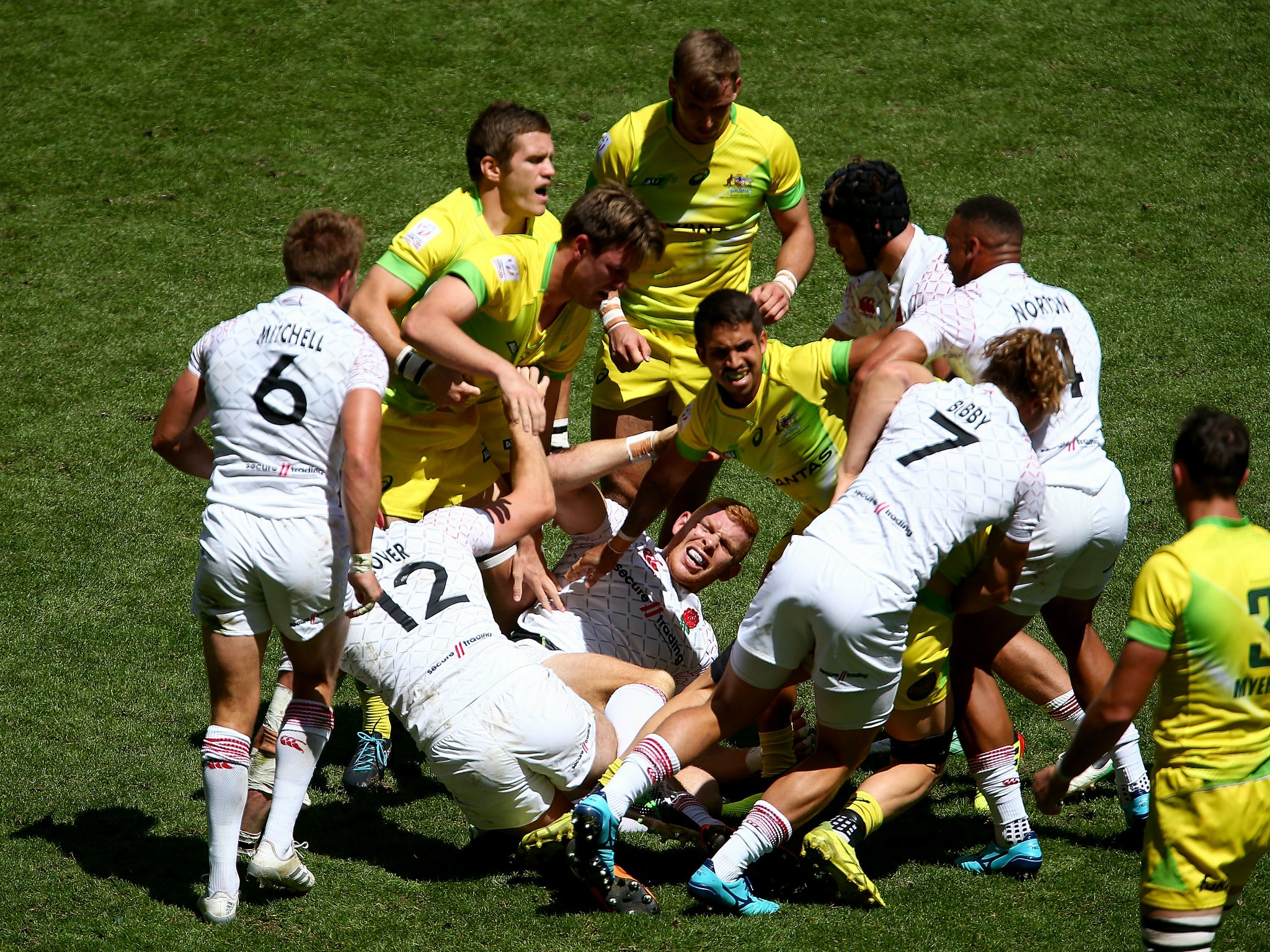
England put up more of a fight against South Africa, trailing 12-7 at half-time with Alex Davis crossing, but scores from Seabelo Senatla, Stedman Gans and Justin Geguld put paid to English hopes and although Norton added a consolation score try, it was a case of close but no cigar for the hosts.
That set-up a mammoth of a final as a South Africa side shorn of the talismanic Cecil Africa due to injury effectively fought for their series hopes, having seen Fiji win the last three legs of the series to overtake them at the top of the table, and they produced an occasion fitting of top billing. South Africa struck first through Gans after Sevuloni Mocenacagi was sin-binned straight from the kick-off for a tackle, but once back to full strength, Fiji found their stride.
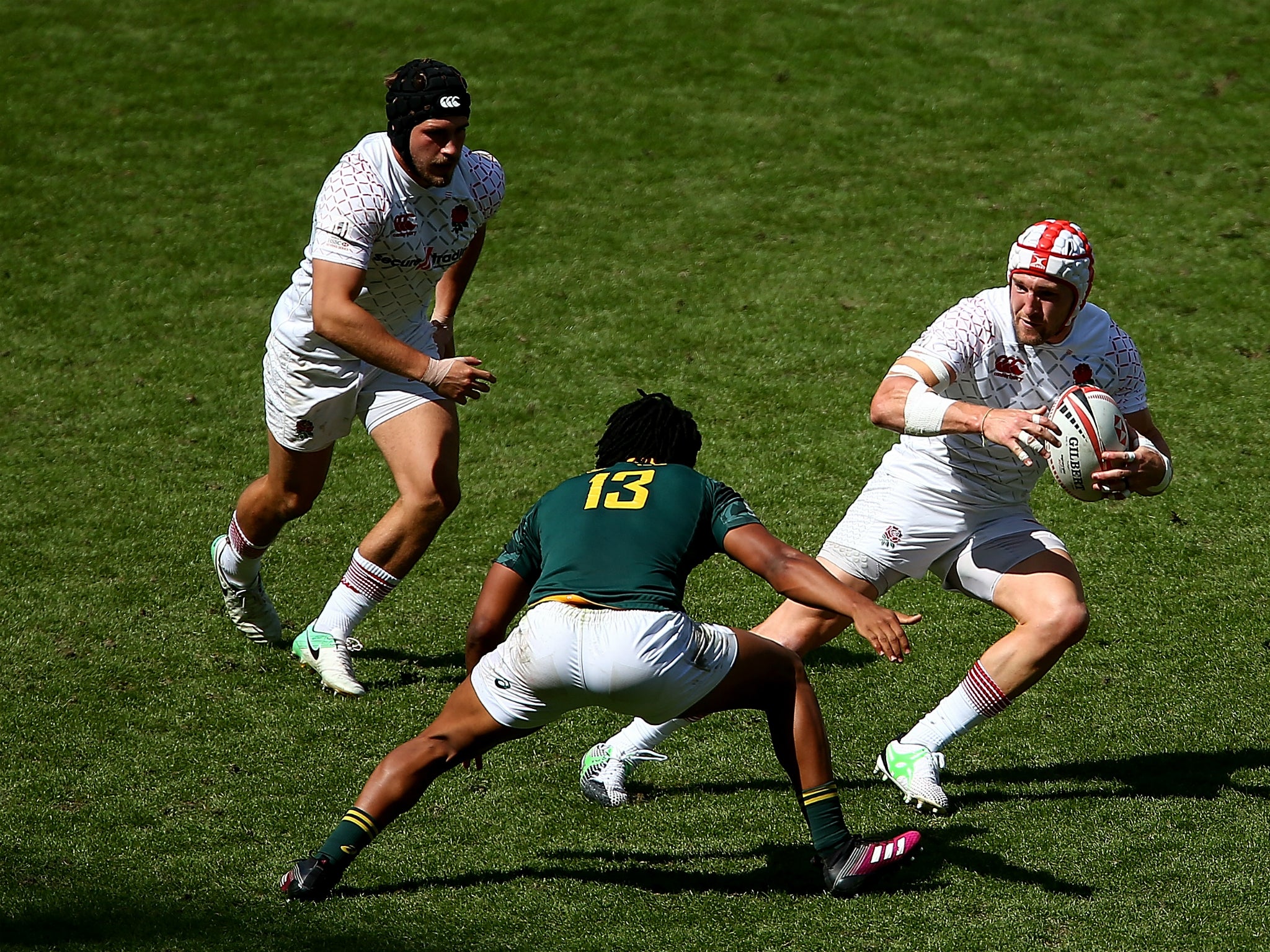
The gifted Josua Tuisova, drafted into the Fiji squad along with Toulon teammate Seme Radradra, produced a lovely step-and-go finish before Paula Dranisinukula put them in front, and although Ruhan Nel brought the South Africans to within two points, Radradra and Jasa Veremalua combined to send Josua Vakurunabili over to seal the 21-17 gold medal victory that not even a late Zain Davids try could prevent, and means that Fiji only have to finish fourth in Paris next week to reclaim the World Rugby Sevens Series title from defending champions South Africa, which would put them pole position to add next month’s Sevens World Cup to the Olympic title they currently hold.
Both Wales and Scotland also maintained their interests in London until the very end, with the Welsh reaching the challenge trophy final after just missing out on a place in the cup quarter-finals to Ireland on Saturday. Having managed to see off France 33-29 before conquering Russia 27-12, Wales went up against a Kenya side that had produced some of the best rugby over the weekend, and the African side just took the spoils with a 21-14 victory.
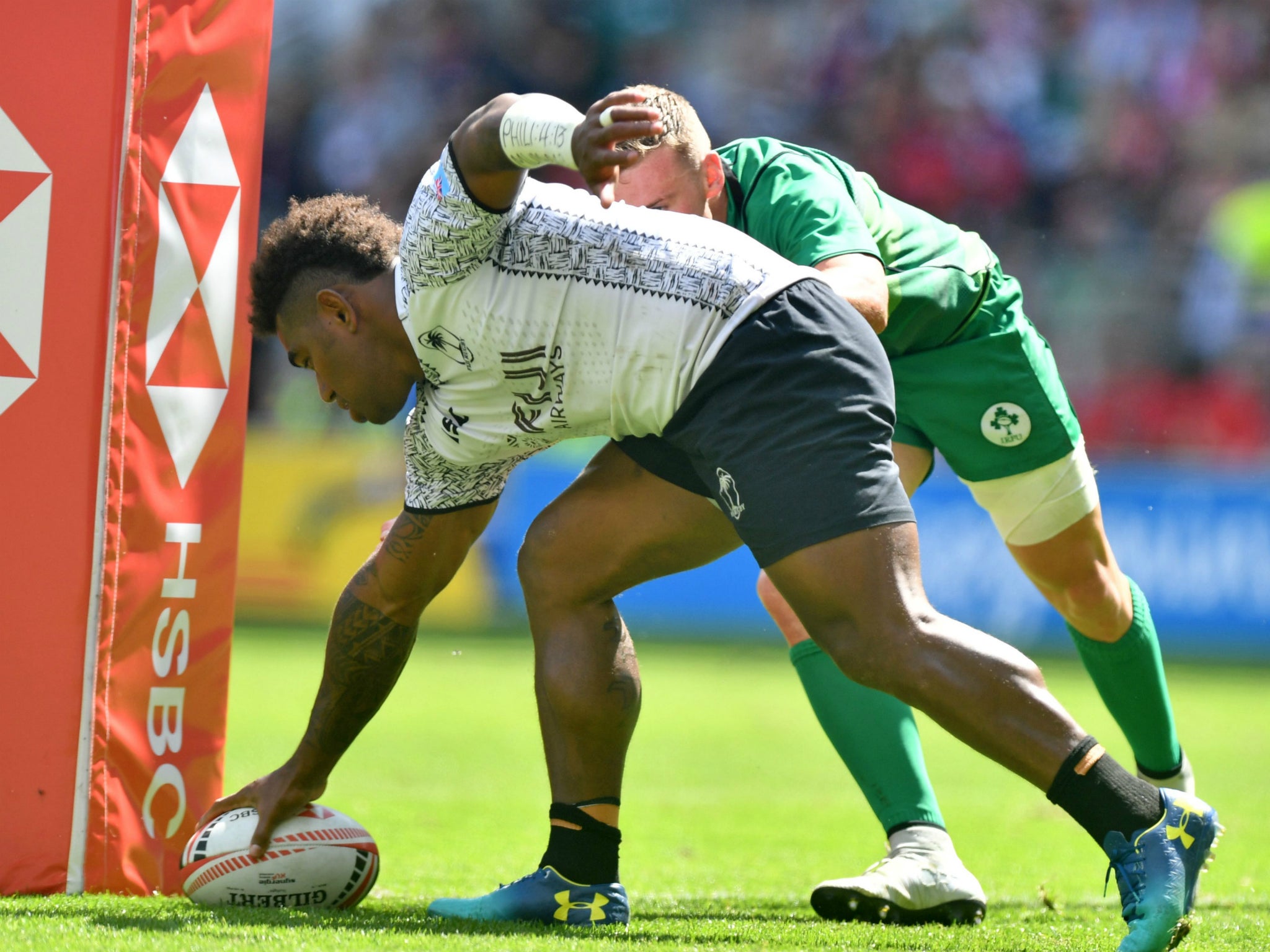
However, it was a much more painful experience for Scotland, who went into the weekend looking to win the London Sevens for a third consecutive time. Instead, after losing all three pool games on Saturday to New Zealand, Fiji and Argentina, they suffered defeat against Russia early on Sunday in the challenge trophy, and any spirits that were lifted from the 43-21 win over France were quickly killed off by a chastening 34-10 defeat in the 13th-place play-off by Samoa.
Join our commenting forum
Join thought-provoking conversations, follow other Independent readers and see their replies
Comments